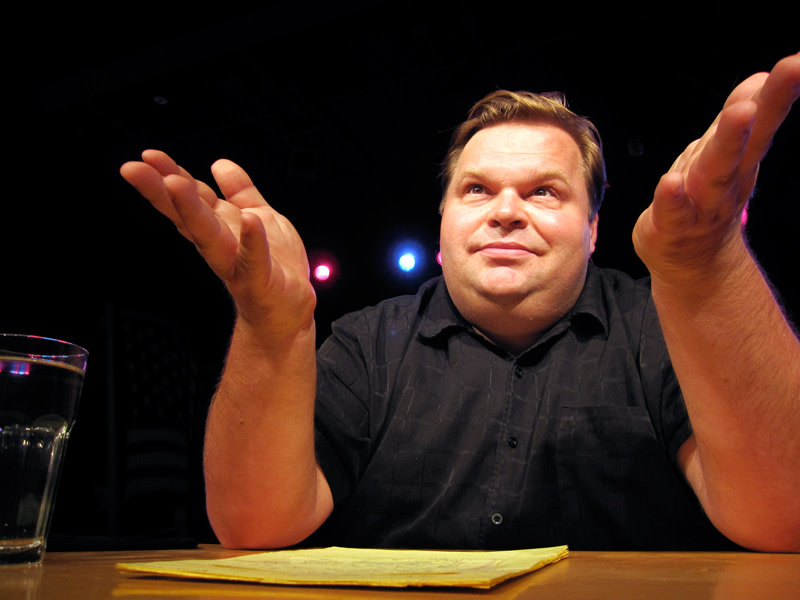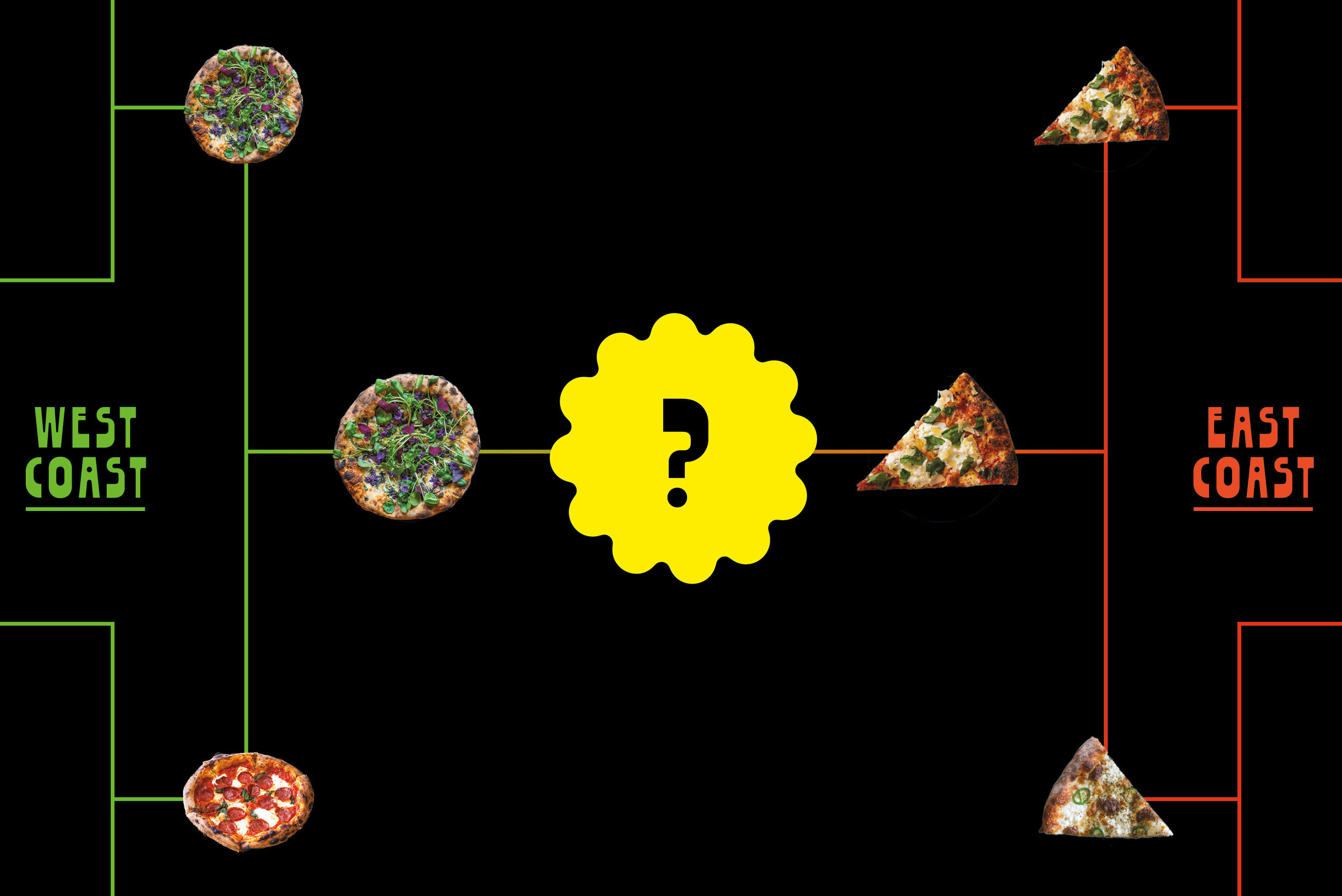Review: Mike Daisey and the Theater of Self-Disclosure

Image: Ursa Waz
And so, for two hours on Tuesday, mopping his brow in front of a packed ballroom at the Tiffany Center, controversial monologist Mike Daisey didn't apologize.
Known for the Icarus trajectory of his 2010 theater piece The Agony and Ecstasy of Steve Jobs, repackaged by This American Life as Mr. Daisey and the Apple Factory—an international performance and radio sensation shredded by fact-checkers in 2012—Daisey surprised many with a last-minute announcement that Portland would witness the “world premiere” of a new monologue, entitled JOURNALISM, billed as a “love letter” to gimlet-eyed members of the press.
Yet unless love from Daisey means backhanded compliments a la Neil Strauss's bag-'em-and-tag-'em manual The Game, Tuesday's performance less resembled courtship than a curious offense-as-defense strategy.
Sandwiching plaintive rhetoric on media objectivity between spirited, if disjointed anecdotes—on Portland's fluoridation vote, a childhood footrace with a cranky old gent, even Disneyland—Daisey's aim seemed to be persuading Tuesday's audience that his critics can be tarred with their own brush.
A rocky sell, given that Daisey's main argument—that omitting information to tell a story makes all journalists essentially writers of fiction—is not what Daisey himself is accused of.
Rather than omission, criticism of Agony centers on Daisey's undisclosed use of embellishment and outright invention to condemn working conditions at Foxconn, a Chinese manufacturer of parts for Apple products. Post-Agony coverage has highlighted Daisey's active misdirection of reporters and fact-checkers, and even questioned the veracity of earlier works, such as his 2002 memoir 21 Dog Years, about working as a grunt at Amazon during the dotcom boom.
For a performer who belittles nitpicky factuality in favor of “larger truths”—lack of labor coverage is a pet theme—Daisey is highly attuned to the minutiae in coverage of himself. “I read absolutely everything that was written about [Agony], and it burned. But it was good, because when you've taken in everything, you become larger than it is,” Daisey said.
While denying that JOURNALISM represents an attempt to counter Agony's critics (“I don't want to win back your affection....I don't care if you like me”), on Tuesday Daisey quickly segued into a lengthy analysis of his own pre-show local press coverage—from Portland Monthly (“a Q&A is the lowest form of article”), to The Oregonian (“good”), to lengthy defense of his portrayal in Willamette Week (“fucking terrible”). Notably absent from this rundown: a rancorous Portland Mercury chat thread fueled by Daisey's own participation—for which he later blamed NyQuil.
“Everyone said they knew what the sin was, but they all got it wrong,” he said once he finally dived into his own scandal. “It was the sin of pride. I didn't believe that the story would change anything, so I appropriated the power of witness. And I did it for the journalists, so they would think it was juicy.”
Despite Daisey's trademark facility with such turns of phrase, and his undeniable stage charisma, Tuesday's monologue suffered from a tone of persistent self-serving. Perhaps Daisey truly views himself, as he presented himself in every self-disclosure, as a Gulliver beset by Lilliputians. Or perhaps, to paraphrase the old sawhorse of stand-up comedy, Daisey simply needs to take more time before distilling his tragedy into good performance.
But right now? Half-way between veiled public apology and sophomoric rant on modern media's failures, JOURNALISM doesn't make for very good theater.




